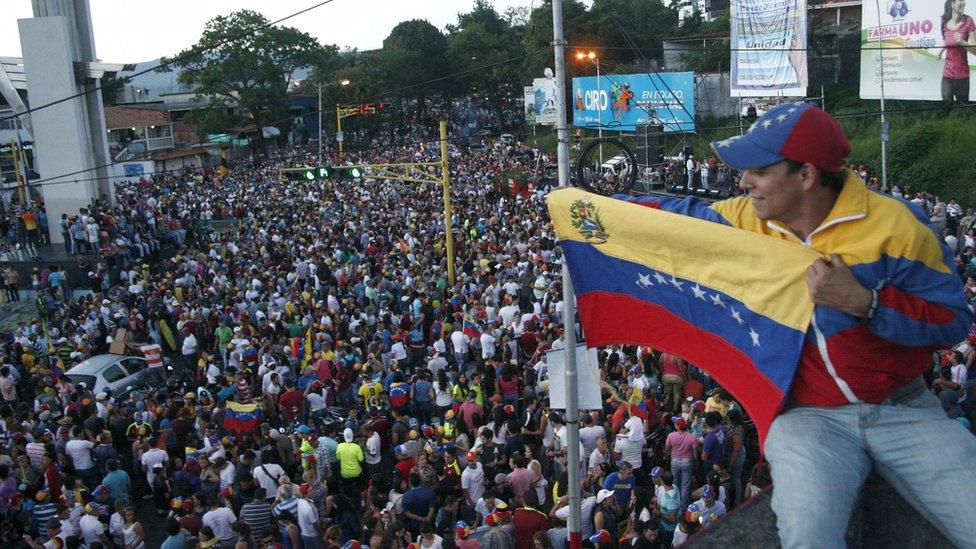Venezuela: Opposition-controlled National Assembly sworn in
- Published
Daniel Pardo reports from Caracas on a historic win for the opposition
A new National Assembly controlled by opposition parties has been sworn in in Venezuela.
It follows the governing Socialist Party's heavy defeat in last month's election.
The result put an end to 16 years of government majorities in the single-chamber assembly.
One government and three opposition members suspended because of alleged electoral irregularities were not allowed to take up their seats.
But even without the three seats, it is believed that the opposition will have the critical two-thirds majority needed to challenge the government of President Nicolas Maduro, says the BBC's Daniel Pardo in Caracas.
Fifty-four pro-government and 109 opposition assembly members were sworn in for a five-year term.
'Defend the revolution'
Mr Maduro's supporters vowed to defend in parliament the left-wing programmes introduced by him and his predecessor, the late Hugo Chavez.
"We took a beating in the elections. That will force us to change and to do things in a better way," said newly elected pro-government assembly member Hector Rodriguez.
"But we will be here to defend the country and the Bolivarian (Socialist) Revolution," he added.
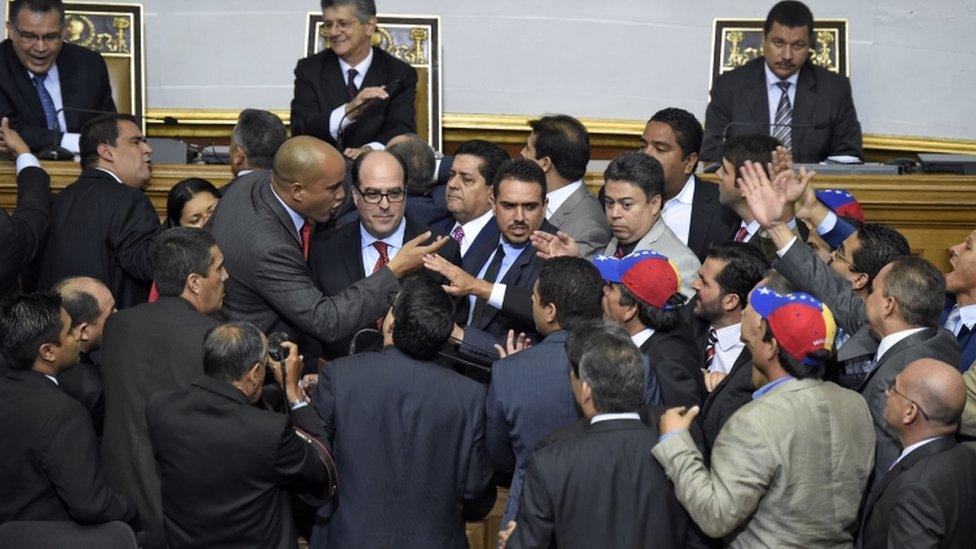
Government and opposition assembly members argued during a tense inauguration session
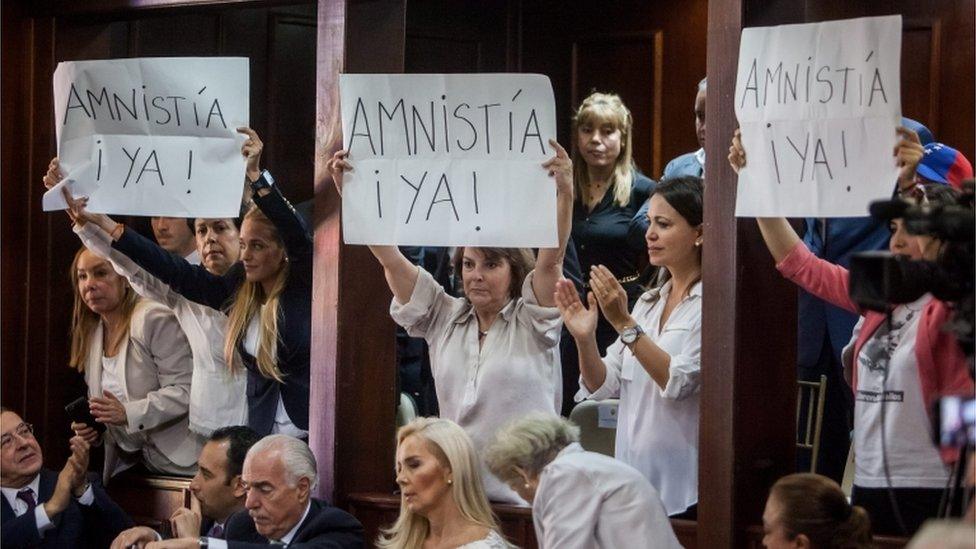
Lilian Tintori, Mitzi Capriles and Patricia Ceballos - wives of imprisoned leaders - held banners calling for an amnesty
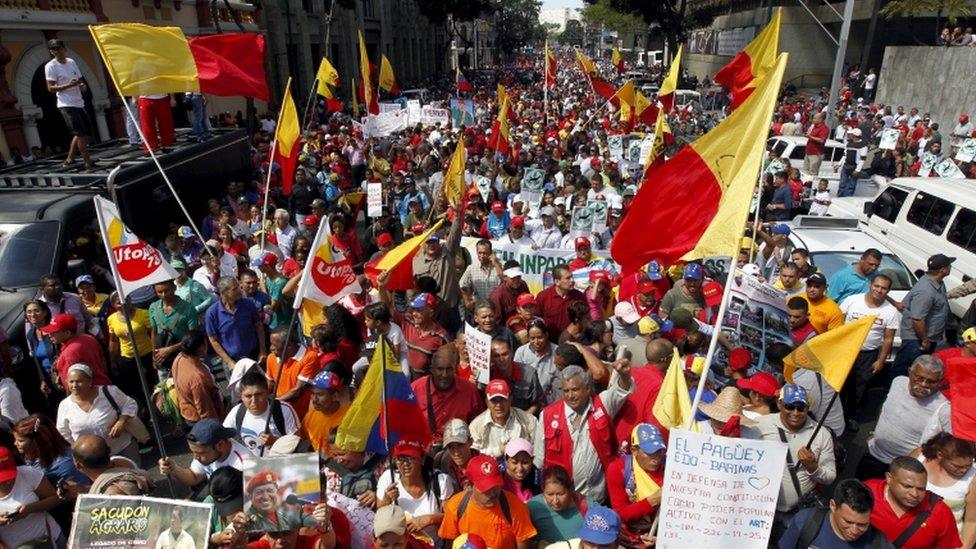
Supporters of President Maduro gathered near the assembly building in central Caracas
Veteran opposition politician Henry Ramos Allup was voted Speaker of the National Assembly, replacing Diosdado Cabello.
After the new members were sworn in, opposition members called for an amnesty for politicians detained during the Maduro government.
Among them is prominent opposition leader Leopoldo Lopez, who was sentenced in September to 13 years and nine months in prison.
He was found guilty of inciting violence during protests in 2014 in which 43 people - from both sides of the political divide - were killed.
Mr Cabello lead a walk out by all pro-government members over "the violation of internal regulations".
He accused Mr Ramos Allup of deliberately ignoring the rules, saying no debate should be allowed in the inaugural session of the assembly.
Mr Cabello also criticised calls for an amnesty law: "It is ridiculous and absurd that the perpetrators forgive themselves. Only (General Augusto) Pinochet did that, in Chile".
Government and opposition supporters gathered in different areas of Caracas as the inauguration ceremony unfolded.
Security was beefed up outside the building because of fears of clashes. But there were no major incidents.
- Published7 January 2016
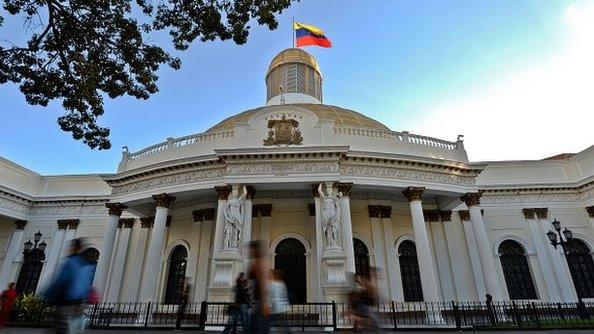
- Published4 January 2016
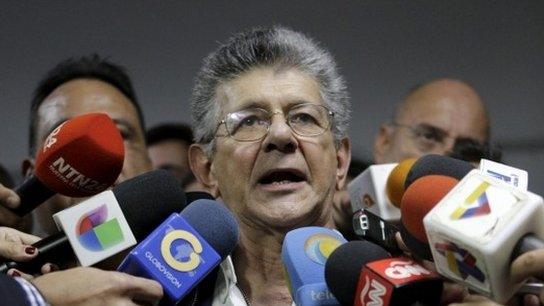
- Published31 December 2015
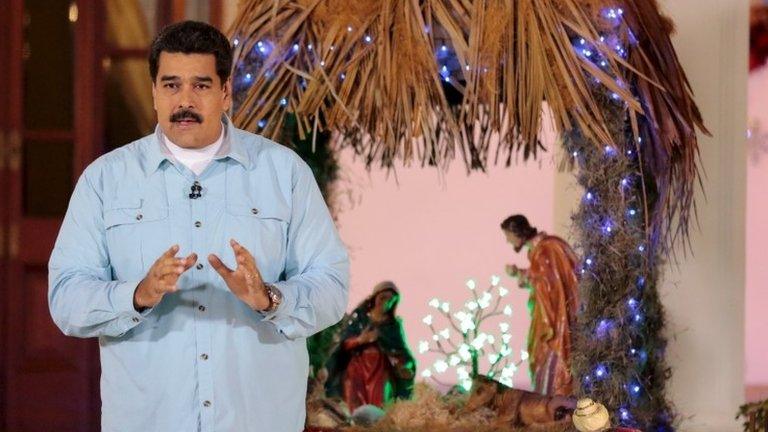
- Published9 December 2015
